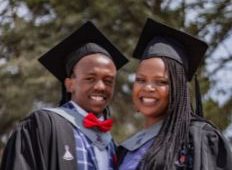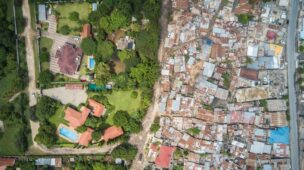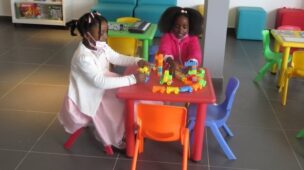
INTRODUÇÃO
Eu gostaria de começar expressando minha gratidão ao Governo do Zimbábue pela calorosa recepção e pela oportunidade de compartilhar nossas experiências recentes. Este artigo reflete minha visão pessoal sobre a relação entre os Fundos Soberanos de Riqueza (FSW) e o desenvolvimento social, com um foco especial na educação. Desde 2002, Angola desfruta de estabilidade política, resultado da paz alcançada após anos de guerra civil, e tem experimentado um período de crescimento econômico significativo, impulsionado pela alta nos preços do petróleo e por um conjunto de reformas estruturais legais e governamentais.
Apesar do crescimento econômico notável, ainda enfrentamos desafios persistentes, como a necessidade de diversificar a economia, que ainda depende fortemente do petróleo, nosso principal produto de exportação e fonte de financiamento para gastos públicos. Através deste artigo, pretendo discutir como o Fundo Soberano de Angola pode contribuir para superar esses desafios, promovendo o desenvolvimento socioeconômico e a estabilização fiscal. Acredito que o investimento em infraestrutura básica e em capital humano é essencial para o progresso contínuo do nosso país.
Neste contexto, apresento as iniciativas que temos implementado para capacitar a população angolana, especialmente os jovens, por meio de programas educacionais e de formação profissional. Estes programas visam não apenas melhorar as habilidades técnicas e profissionais, mas também fomentar o espírito empreendedor e a inovação. Estou convencido de que, ao investir no potencial humano, podemos garantir um futuro mais próspero e equitativo para Angola, permitindo que todos os cidadãos participem ativamente do crescimento econômico do país.
BENEFITS OF EDUCATION AND SOCIAL INVESTMENT
It is absolutely essential that development in education at all levels is inherent in any kind of societal development. Today, Sectors such as Mining, Manufacturing, ICT, Agriculture, Fishing, Tourism ,Health, etc, are not only crucial for productivity, so important for economic growth, but also for the improvement the lives of Angolan citizens as well as enhancing both public and private sector performance.
Education is typically focused on the young population who has the potential to return benefits to the country for future decades and is essential for the benefit of Africa and this is where the Sovereign Wealth Fund can make the difference
The Angola SWF has enormous potential as well as providing direct tangible social and economic solutions for the people and development of Angola.
The social value of the SWF lies in the fact that huge amounts of funds could be available for social development, not only for present, but also for future generations. However, the potential value for citizens will only be unlocked if they are aware of the existence of the Angola SWF which will be able to show them the true value it has for Angolan Society, financing projects which will have a marked and tangible effect upon their lives.
Angola Sovereign Wealth Fund Investment in Education
Through the Social Charter, the Sovereign Fund of Angola supports social programs and partnerships with both the Public and Private Sector through its social impact program, designed to support communities across the country where it invests directly.
The Fund dedicates up to 7.5% of the social development grant and social responsibility projects in the areas of education, generation of own income, health and access to energy and drinking water outside the national distribution network.
Education Programmes financed by ASWF
Kamba Dyami – Program – One laptop per child
The “One Laptop Per Child” program is a multi-year project that encourages computer-based learning in schools located in the most deprived areas of Angola. The program, launched in 2011, has made available more than 2,400 laptops to children who have benefited from computer-based learning. The focus will also be on capacity building, which includes continuous updating of curricula and teachers, which will help to develop and promote computer-based learning.
The FSDEA intends to extend this initiative to the rural and peripheral areas of Angola, working closely with the Salesian administration of Don Bosco schools to expand this project and to include more schools, more children and more teachers in the future.
Future Leaders in Angola – Scholarship Program

In August 2014, FSDEA announced the launch of its scholarship program titled “Future Leaders in Angola,” which aims at economic empowerment of a new workforce in Angola. This exclusive educational initiative will offer graduates and talented young Angolans the opportunity to participate in an intensive and specialized management course in international business management, investment banking and finance. So far, the Fund has awarded 46 scholarships, offered in partnership with the School of Management and Law at the University of Applied Sciences Zurich (ZHAW).
Graduates of this unique program will acquire global experiences and deep knowledge of several successful industries worldwide, becoming future leaders of knowledge in Angola. Many graduates of this program will help develop the country’s economic growth and prosperity.
Continuing investment in the vocational training of Angolan youth shows the Fund’s commitment to social development projects and support to the country’s sustainable economic growth, as envisaged in its investment policy, decreed by the Government of Angola in June 2013.
Vocational Schools – the main focus is to complement the official education with professional courses and internships in companies, to improve employability, which facilitates the easy insertion into the labor market. Our target group is young people and in partnership with ADPP this programme is being implemented in 7 Provinces.
Hotel School – aims to launch hospitality courses for Technical Certification aimed at the basic professions such as catering, cookery and hygiene in a first phase. Subsequently courses on finance and hotel management and more task-oriented management will be integrated into the Programme.
Other examples of SWFs which invest in Education Projects.
In recent decades more than 50 countries – from Norway to Singapore – have introduced state-owned sovereign wealth funds. These have mostly been resourced through the exploitation of oil. Several examples offer a blueprint for a model social wealth fund that finance projects in the field of education for example:
Temasek Singapore – Since its inception in 1974, it has established 18 non-profit philanthropic endowments. These focus on building people, building communities, building capabilities and rebuilding lives.
Since 2004, to support the community contributions, they have set aside a share of their returns above the risk adjusted cost of capital.
They seed endowments to fund programmes, which tackle emerging needs in their communities. These programmes are implemented by Temasek’s 6 Foundations and their partners in the communities they serve.
Azerbaijan State Oil Fund Sofaz, is a special purpose state organization in which Azerbaijan’s revenues from implementation of oil and gas agreements are accumulated, managed and preserved for future generations. In the case of the Azerbaijani SWF they support the state program on the education of Azerbaijani youth abroad in the years 2007-2015 is an educational program providing scholarship grants to Azerbaijani students enrolled in prestigious foreign university. $78.46M
Texas Permanent School Fund is a $22 billion endowment designated for the benefit of public schools in Texas. The State of Texas has also created the Permanent University Fund (PUF) created to fund public higher education within the State.
The Alberta Heritage Fund was created in 1976 by the Alberta Heritage Savings Trust Fund Act. Initially, the fund received 30% of Alberta’s non-renewable resource royalties coming from its vast oil wealth. This fund was created with several goals in mind such as: investing for the transfer of wealth to future generations, to strengthening the economy, to improve the quality of life of citizens.Since 1976, the Fund has contributed $34 billion to fund Albertan priorities like health care and education.
ECONOMIC GROWTH AND EXPANSION

It is difficult for a country to maintain a process of continued development and poverty reduction if it is not based on continued expansion of its education and training capabilities as well as productive capacities. In turn, if we want to advance in this process, it is necessary to create the conditions so that part of the creative initiatives of society are transformed into productive undertakings and companies, able to put the productive potential of the country into use, generate income and employment and contribute value to society.
Government policy must strive to facilitate the non-oil sector’s entry into the National and International markets by making it competitive. For it is in the non-oil sector where the vast majority of the Angolan population live and work. It is this majority who must have the education, skills and opportunities to compete in these markets.
The skills needed include, but are not exhaustive by any means:
- Development of focused Training and Educational Programmes and Projects at all levels and in conjunction with local players.
- Fulfillment of poverty reduction measures and the solution of other social inclusion problems, education, health, sanitation, inequalities etc.
- Stimulating the improvement of the intellectual, material, and technical and technological base of the economy.
- Development of human capital to include training highly qualified specialists and improving the professional skills of employees.
Projects developed through the Angola SWF are a vehicle and not an end in itself, what is the clearest and simplest notion of what it should be seeking to achieve?
Enabling asset-building for purposes of driving local human development. Investing in the basic capacities of a community’s members has intrinsic value, but it also has substantial social and economic returns and is a prerequisite for advances in the various fields of society, measured by economic growth.
CLOSING REMARKS

And whilst the global economy continues to present an unsettled picture, Africa is continues to grow. The outlook remains positive.
We do have an important job to do – and it is a challenge in the current climate.
In closing I would like to say that despite the challenges we face in Angola our country remains a land of opportunity but we must strive to make sure that education is the core of our society and success for the future.
Such initiatives like Innovation Africa are really welcome and should be supported at our Continental level. These platforms for exchanging ideas for education and innovation are very important. Africa must find its solutions internally, sharing positive and negative experiences.
Thanks once again to the organizers of the event and for the honor and opportunity they have given to share our modest vision of the role of SWF in supporting the education and training of future generations.
Thank you very much
Para ter acesso ao artigo completo clique aqui.






Comments are closed, but trackbacks and pingbacks are open.